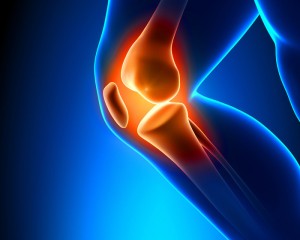 In a small trial of 10 patients with damaged knee joints, doctors harvested cells from their noses to engineer new cartilage tissue and transplant it into their damaged knees. In a paper published in The Lancet, the Swiss team describes how 2 years after transplant, most of the patients had developed new tissue similar to normal cartilage and reported improvements in knee function, pain, and quality of life.
In a small trial of 10 patients with damaged knee joints, doctors harvested cells from their noses to engineer new cartilage tissue and transplant it into their damaged knees. In a paper published in The Lancet, the Swiss team describes how 2 years after transplant, most of the patients had developed new tissue similar to normal cartilage and reported improvements in knee function, pain, and quality of life.
However, the authors point out that while the results of their phase I study are promising and show the approach is feasible and safe, there is still a long way to go before such a procedure can be approved for routine use with patients.
One of the unique features of the new study is that Prof. Martin and colleagues used chondrocytes harvested from a site far away from the damaged joint – from the patients’ nasal septum. These cells have a unique ability to grow new cartilage tissue.
For the study, the team enrolled 10 patients (age 18-55) with full-thickness cartilage damage to the knee and took a biopsy from their nasal septum under local anesthetic. They grew chondrocytes harvested from the biopsy tissue by stimulating them with growth factor for 2 weeks.
The team then took the cultured new cells and seeded them onto “scaffolding” made of collagen and grew them for another 2 weeks. The result was a 2-millimeter thick graft of new cartilage measuring about 30-40 millimeters.Each patient then underwent surgery where the damaged knee cartilage was removed and replaced with their own cultured graft cut into the appropriate shape.
After 2 years, scans showed new tissue of similar composition to cartilage had grown at the affected sites.The authors note there were no reports of adverse reactions to the surgery, although there were two reports of injuries not related to the procedure.
In an accompanying comment article, Dr. Nicole Rotter, from Ulm University Medical Center, and Dr. Rolf Brenner, from the University of Ulm – both in Germany – say the trial “represents an important advance towards less invasive, cell-based repair technologies for articular cartilage defects.”They also mention the promising result that patient age does not appear to affect the success of the procedure.
However, like the trial authors, they conclude that only longer-term randomized, controlled trials – that among other things test the quality of the repair tissue – will be needed before we can say whether this approach is likely to gain regulatory approval and reach clinical use.

